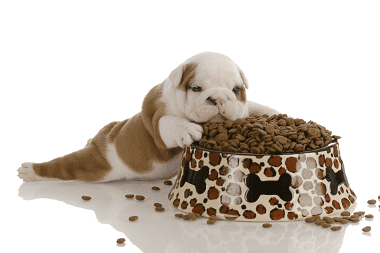Diseases of pets >>>> Pet obesity
Pet obesity.

Obesity in a pet is either a metabolic disorder or the result of overfeeding. In the wild, animals are malnourished, and obesity does not threaten them, but falling into the good hands of the owner and starting to eat regularly, they can gain weight very quickly, which has an unfortunate effect on their health. Therefore, the main task of the owner is to improve the life of his pet in such a way that he does not overeat, does not starve and move a lot.
A pet, like all family members, should have a diet and portions of food that are commensurate with its size, metabolism, and energy. As you know, the pet itself rarely regulates its gluttony, especially dogs and cats. Rodents tend to gorge themselves on stocks for future use, so they will not eat everything that is offered to them, although there are cases of overfeeding of a domestic rodent and its death from obesity.
If every time, leaving the kitchen, tossing a piece of food into the pets, they will develop a reflex of non-stop eating, which can play a cruel joke, for example, at night and in the absence of the owner, the pet will begin to climb the table in search of food or gut the trash bin with food waste. To prevent this from happening, the pet must be taught to eat a certain number of times a day.
Especially inappropriate and dangerous are handouts from the table during family breakfasts, lunches and dinners, when the animal looks at you with loving eyes, and it's hard to deny him a piece of delicacy. You should be aware that human food in some of its manifestations (smoked meats, canned meat and fish, sweets) is harmful to the animal's body, since most animals do not have all the enzymes for digesting certain types of foods, which will lead to endocrine disorders and shorten the life of a pet.
If the owner of the pet is absent during the day, and there is no one to feed the pet, then you should not put food in the bowl for the whole day (everything will be eaten at the same time, and by the evening the animal will remain hungry). It is necessary to install an automatic feeder that is programmed at certain intervals and dispenses portions of food.
If the pet shows signs of obesity: the pet has gained more weight than usual; it became less to move, to be lazy to walk and have fun, it is worth revising the diet in terms of food calorie content and dosing. For dogs, the amount of food matters, for cats and rodents its quality (fat content). It should be borne in mind that vitamin complexes added to the pet's diet increase appetite and promote overeating.
Obesity of a pet is a bad sign, indicating that its body cannot cope with the processing of incoming substances, which means that during this period the internal organs are loaded, muscle tissue suffers, swimming with fat (and heart muscle as well), squeezed from fat deposits of internal structures. Interruptions in blood vessels, heart, breathing, and the work of the digestive tract will begin. In general - everything is like people.
To get rid of obesity, a pet will have to forcibly "wiggle" it, provoking it to active exercises, reduce the calorie content of food, buy entertaining sports equipment for the animal. If an independent fight against obesity does not help, a veterinarian's consultation is necessary, since obesity may not be an accidentally acquired disease through an oversight of the owner, but a genetically programmed disease that requires drug treatment.

Read

Read



























